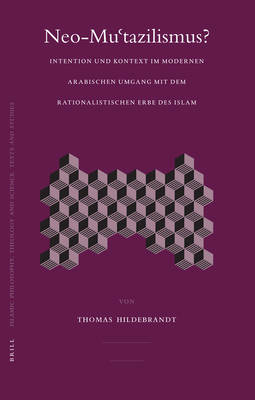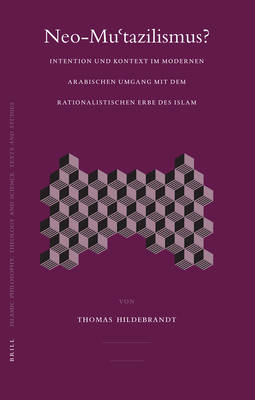
- Afhalen na 1 uur in een winkel met voorraad
- Gratis thuislevering in België vanaf € 30
- Ruim aanbod met 7 miljoen producten
- Afhalen na 1 uur in een winkel met voorraad
- Gratis thuislevering in België vanaf € 30
- Ruim aanbod met 7 miljoen producten
Zoeken
Neo-Muʿtazilismus?
Intention Und Kontext Im Modernen Arabischen Umgang Mit Dem Rationalistischen Erbe Des Islam
Thomas Hildebrandt
€ 467,45
+ 934 punten
Omschrijving
This book examines the modern Arab rediscovery of the Muʿtazila through a critical assessment of the concept of "Neo-Muʿtazilism" and by concentrating on the various intentions and contexts of the use of Muʿtazilite ideas.
The main part of the book analyzes five ways of understanding Mu'tazilite ideas -- liberal, historic-materialist, political-Islamic, literary-exegetical and through comparison with the philosophie des valeurs -- as well as one way of dealing with the school historically: the treatment of the miḥna.
The book discusses a wide range of authors of whom many, such as Aḥmad Amīn, Ḥusain Murūwa, Ḥasan Ḥanafī, Muḥammad ʿAmāra, Naṣr Abū Zaid und Muḥammad ʿĀbid al-Ğābirī, have had an important impact on modern Arab-Islamic thought. By also presenting authors such as Zuhdī Ğārallāh, Chikh Bouamrane, Rasīd al-Ḫayyūn, Amīn Nāyif Ḏiyāb, Samīḥ Duġaim, ʿĀdil al-ʿAwwā und Fahmī Ğadʿān, additional light is shed on a number of lesser known figures.
The main part of the book analyzes five ways of understanding Mu'tazilite ideas -- liberal, historic-materialist, political-Islamic, literary-exegetical and through comparison with the philosophie des valeurs -- as well as one way of dealing with the school historically: the treatment of the miḥna.
The book discusses a wide range of authors of whom many, such as Aḥmad Amīn, Ḥusain Murūwa, Ḥasan Ḥanafī, Muḥammad ʿAmāra, Naṣr Abū Zaid und Muḥammad ʿĀbid al-Ğābirī, have had an important impact on modern Arab-Islamic thought. By also presenting authors such as Zuhdī Ğārallāh, Chikh Bouamrane, Rasīd al-Ḫayyūn, Amīn Nāyif Ḏiyāb, Samīḥ Duġaim, ʿĀdil al-ʿAwwā und Fahmī Ğadʿān, additional light is shed on a number of lesser known figures.
Specificaties
Betrokkenen
- Auteur(s):
- Uitgeverij:
Inhoud
- Aantal bladzijden:
- 576
- Taal:
- Duits
- Reeks:
- Reeksnummer:
- nr. 71
Eigenschappen
- Productcode (EAN):
- 9789004150997
- Verschijningsdatum:
- 6/04/2007
- Uitvoering:
- Hardcover
- Formaat:
- Genaaid
- Afmetingen:
- 167 mm x 242 mm
- Gewicht:
- 1174 g

Alleen bij Standaard Boekhandel
+ 934 punten op je klantenkaart van Standaard Boekhandel
Beoordelingen
We publiceren alleen reviews die voldoen aan de voorwaarden voor reviews. Bekijk onze voorwaarden voor reviews.











